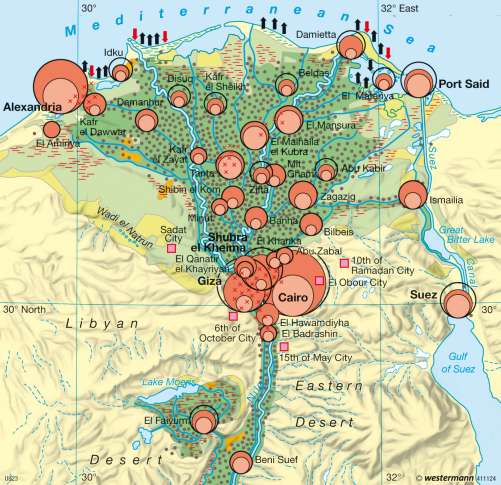Context : In a world, very similar to our good old Earth, with late medieval technology, a great kingdom has united a whole continent. Except, that is, for a small country, located southernmost of this middle-sized continent. This nation, being near the equator, faces intense drought all year long.
The thing is, our little country, while bearing with desert climate, needs to be able to feed its people and still sell a whole lot of excess to the kingdom. This nation of farmers have to provide at least half of the food for the whole continent. Assume a population of about 20 million people, total.
The answer : A large river runs throughout the continent, finally meeting the sea deep inside the territory of our farming nation. I was thinking of giving it a huge delta, to make this land a bit more fertile. Think about the Nile, who provided ancient Egypt with plenty of arable land.
The issue behind the answer : Said example (the Nile) was flooding. A whole lot. I don't want my little country to face this kind of event. Still, I want them to provide food for the greater kingdom North.
The question : given this setting, my question is the following :
Is it possible for a country facing harsh climate to grow food in excess, thanks to a delta ? If so, how large would said delta need to be ? I read that flooding was what made the Nile bring all those useful sediments, and I don't know if a non-flooding river will impact farming in this environment.
Edit : these are great answers, thanks a lot. Here’s a little clarification, for those who asked. The big kingdom relies on this particular country for several reasons. First, having unified the continent recently, the king is facing uprisings. To those filthy rebels, one must add external threats. Also, unstable political game. Our tiny farming country just isn’t enough of a threat to be dealt with.
Also, in the past, big almighty kingdom tried to invade and secure the food sources for themselves. Turned out that our peaceful farming nation is especially good at dodging conflicts, and has another ace up their sleeve. But that’s a story concern. So just assume that the great empire is forced to deal with this fact. Also, transporting the food is not an issue in this particular context, but feel free to bring more precision, to potentially help others.

